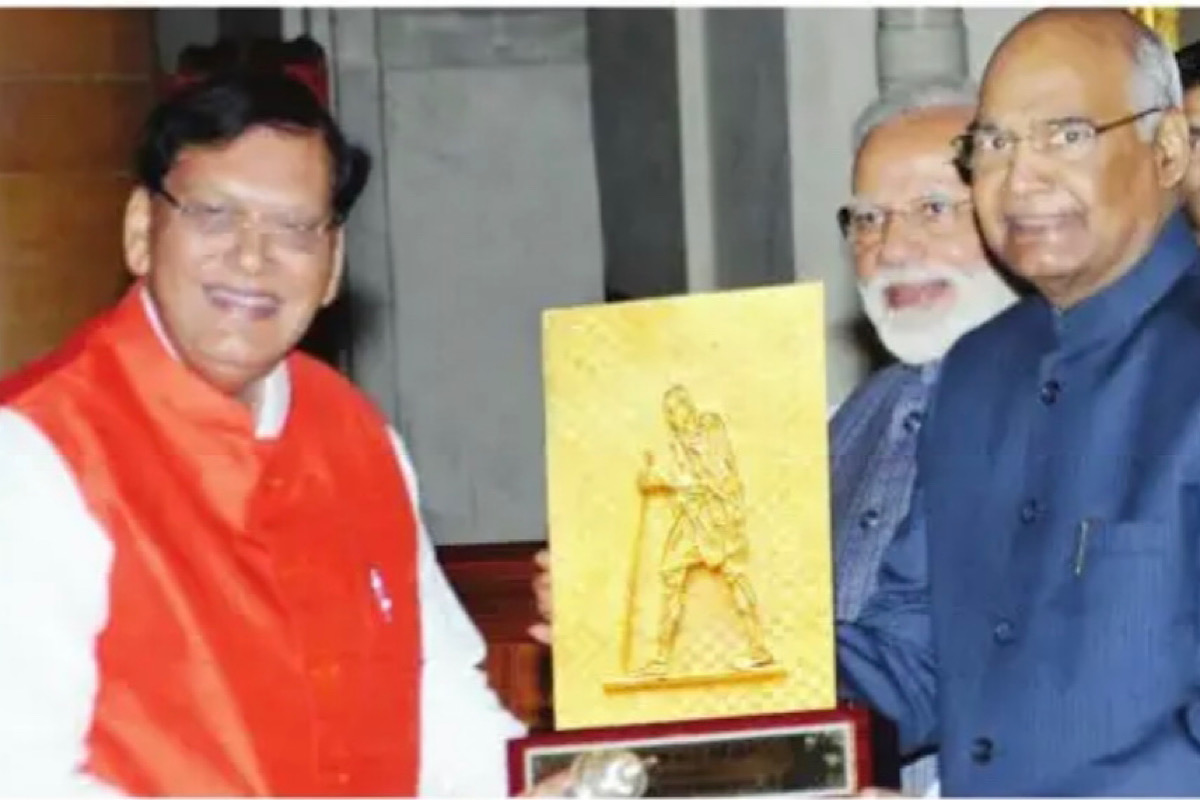GOI’s special campaign to review minimisation of pendency and institutionalising Swacchata
Dr. Jitendra Singh said massive participation is being witnessed across Ministries/Departments and their field/outstation offices

(photo:SNS)
I deas have the potential to change society. It is widely believed that a simple but positive idea can often have a ripple effect on society and can in turn create a revolution. Dr. Bindeswar Pathak of Bihar who passed away on 15 August 2023 was an unknown person in India until 1970, but his idea of Sulabh Sauchalaya ultimately turned him into a famous figure and created a revolution in the field of environmental sanitation.
His pioneering idea to start Sulabh International in India in 1974 was undoubtedly a big step to cleanse India from the filth and stench of human waste and open air defecation prevalent in our country especially in the countryside. Dr. Pathak from Bihar conceptualized “Pay and Use Public Toilets” in India. It was, so to say, the beginning of a sanitation revolution that brought to an end the heinous practice of manual scavenging by Bhangis (scavengers) in vogue for centuries.
The Sulabh Sauchalayas (Public Toilets) introduced by him became immensely popular with the people and made them conscious of cleanliness of surroundings, and instilled civic sense in them. Now, India has 8,500 Sulabh Sauchalayas across the country in urban regions catering to the needs of common people. These toilets are located in all major public places including 36 railway stations in India.
Advertisement
This apart, Sulabh International, the social service organisation founded by Dr. Pathak has popularized the concept of sanitation and hygiene among the rural people of our country. It has converted dry latrines into two-pit pour-flush latrines in 1749 small rural towns and has constructed about 1,60,835 toilets in villages. Apart from this, Sulabh has constructed thousands of toilets in slums and schools to keep these places pollution-free and clean. Sanitation and waste disposal date back to antiquity.
People in Mesopotamia and Indus Valley Civilisation had known the use of cesspits and a sewer system that discharged into drains. As early as 3300 B.C in Habuba Kabir, an ancient Mesopotamian city, now in modern Syria, people used pipes to carry off waste water. People of the Indus Valley in India used waste water to flush privies that emptied into brick-lined cesspits.
With the passage of time people of every civilization and culture developed their own waste disposal systems and management of environmental sanitation. In India, unchecked population growth, poverty, illiteracy, the evils of caste system and ignorance about civic sense were the main causes of open air defecation that adversely affected the country’s image in the eyes of foreign visitors and tourists. The low-caste untouchable people (called Bhangis) were forced to do manual scavenging from dry latrines and sewers of the rich and upper-caste people of Indian society for centuries. It was humiliating and agonizing for the
Pariah or Dalit community who had low esteem in a caste-divided social order. They remained ostracized and marginalized from the mainstream of civilized society. The 2011 Census in India records 7,94,000 cases of manual scavenging across India with Maharashtra topping the list of states with 63,713 cases. Even though the Social Justice Ministry claims that there is no manual scavenging practiced in India, reliable sources estimate that there are as many as 58,098 manual scavengers in our country still now.
The ongoing toilet construction programmes under the aegis of Sulabh International Organisation and Prime Minister’s Swachh Bharat Movement will surely give India a clean society with a well-regulated sanitation and sewer management system that will ultimately show to the world that cleanliness is Godliness. Dr. Pathak, a recipient of the Padma Bhushan, who sought to reform a society with a poorly managed sanitation system can be said to have ushered in a silent revolution through his idea of Sulabh Sauchalayas.
(The writer is a retired Principal)
Advertisement